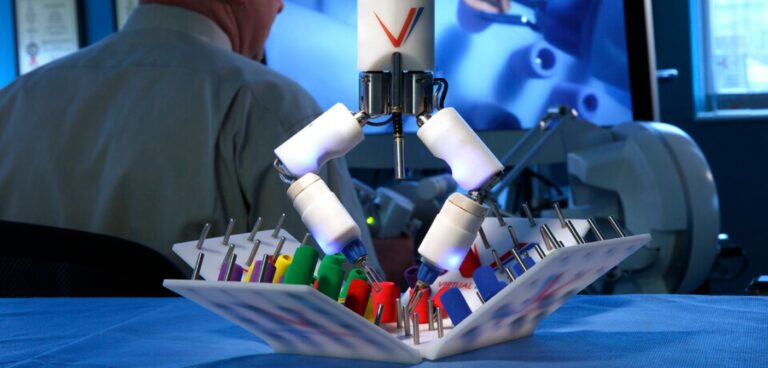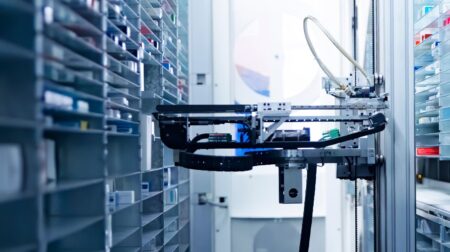Engineers from the University of Nebraska-Lincoln have built a miniaturised surgical robot which will be spent to space through a US$100,000 (£82,500) grant from NASA.
The surgical robot has been cleared for a 2024 test mission aboard the International Space Station.
“NASA has been a long-term supporter of this research and, as a culmination of that effort, our robot will have a chance to fly on the International Space Station,” said Shane Farritor, professor of engineering.
Farritor is co-founder of startup Virtual Incision, which has seen more than US$100m (£82.5m) in venture capital since its 2006 launch.
For nearly 20 years, he and his colleagues have been developing the tiny surgical robot known known as the miniaturised in vivo robotic assistant, or MIRA.
During the next twelve months, Farritor and engineering graduate student Rachael Wagner will write software, configure MIRA to fit inside an experiment locker and test the device to make sure it is equipped to survive launch and the space station environment.
MIRA is designed to be inserted through a small incision, enabling doctors to perform surgery in as non-invasive a manner as possible. In previous tests, the device has successfully performed colon resections.
While in space, MIRA is expected to work autonomously and without a manual guide inside a microwave-sized locker.
The appeal of autonomous performance is that it reduces space station communications bandwidth and minimises astronaut involvement.









